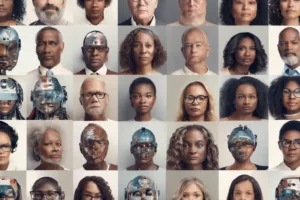
OpenAI's latest announcements showcase its commitment to innovation and staying ahead in the AI arms race.
OpenAI, one of the leading artificial intelligence (AI) companies, made significant announcements during its first in-person event. The company introduced GPT-4 Turbo, a more powerful AI model that provides answers with context up to April 2023. Additionally, OpenAI unveiled a new option that allows users to create custom versions of its ChatGPT chatbot. These developments come as OpenAI aims to outpace competitors like Anthropic, Google, and Meta in the rapidly evolving AI landscape.
GPT-4 Turbo: Expanding Knowledge and Capabilities
GPT-4 Turbo represents the latest advancement in AI models, surpassing its predecessors by providing up-to-date information and accepting significantly more input. Unlike previous versions, which are limited to knowledge until January 2022, GPT-4 Turbo can provide context and answers based on events up to April 2023. OpenAI CEO Sam Altman acknowledged the frustration caused by previous versions' outdated knowledge, emphasizing the company's commitment to addressing this issue.
Moreover, GPT-4 Turbo allows users to input up to 300 pages of text, enabling the summarization of entire books. This breakthrough opens new possibilities for researchers, students, and professionals across various industries. Additionally, GPT-4 Turbo supports DALL-E 3 AI-generated images and text-to-speech capabilities, offering a more immersive and interactive experience. OpenAI has also reduced the prices for developers, making GPT-4 Turbo more accessible and affordable.
Custom Chatbots: Empowering Personalization
OpenAI's announcement of custom chatbots marks a significant expansion of its offerings. Previously, only enterprise and business users could train and customize ChatGPT for specific industries and use cases. Now, anyone can create their personalized chatbot without coding expertise. This democratization of AI empowers individuals, companies, and developers to build chatbots tailored to their specific needs, whether for internal use or public deployment.
The of personalized AI chatbots reflects the growing demand for AI tools that provide customized experiences. With more than two million developers already using ChatGPT's API, consumers can expect personalized AI chatbots in various applications and websites they regularly use.
Open AI's Version of the App Store: Monetizing AI Creations
To further support the development and distribution of custom chatbots, OpenAI is launching its version of the app store called the GPT Store. This platform allows creators to make their custom chatbots available for public download. OpenAI plans to introduce a revenue-sharing model based on usage numbers in the coming months, enabling creators to earn money from their creations.
The GPT Store will feature a leaderboard highlighting the most valuable and delightful chatbots in productivity, education, and entertainment categories. OpenAI's CEO, Sam Altman, emphasized that the company focuses on selling intelligence and intelligent agents, positioning OpenAI for future growth and innovation.
Streamlined AI Tools: Enhancing User Experience
OpenAI addressed user feedback by streamlining its AI tools into one cohesive platform. Previously, users had to navigate between apps and websites to access various features. With the integration of image generation via DALL-E, browsing capabilities, data analysis, document upload, and PDF search within ChatGPT, OpenAI aims to provide a seamless and user-friendly experience.
OpenAI's recent announcements highlight the company's commitment to advancing AI technology while addressing user needs. The GPT-4 Turbo and personalized chatbots demonstrate OpenAI's dedication to innovation and customization. By launching the GPT Store, OpenAI creates a platform for creators to monetize their AI creations while offering users a wide range of chatbot options. Integrating AI tools into one unified platform enhances user experience and accessibility. As OpenAI continues to evolve, it remains at the forefront of the AI arms race, driving progress and shaping the future of artificial intelligence.

Alejandro Rodriguez, a tech writer with a computer science background, excels in making complex tech topics accessible. His articles, focusing on consumer electronics and software, blend technical expertise with relatable storytelling. Known for insightful reviews and commentaries, Alejandro's work appears in various tech publications, engaging both enthusiasts and novices.
Follow us on Facebook







